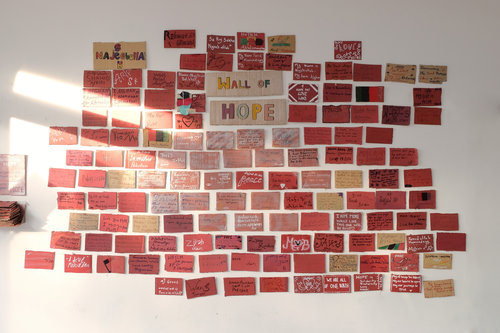- About
- Topics
- Picks
- Audio
- Story
- In-Depth
- Opinion
- News
- Donate
- Signup for our newsletterOur Editors' Best Picks.Send
Read, Debate: Engage.
| February 26, 2020 | |
|---|---|
| topic: | Refugees and Asylum |
| tags: | #Sri Lanka, #Reunion, #asylum, #migration, #Indian Ocean |
| located: | Sri Lanka |
| by: | Bob Koigi |
But it has also raised fears that the route to the island and the island itself could be used for human trafficking. Australia has traditionally been the preferred destination for asylum seekers, but since the country enforced stricter immigration rules including crackdown on boats arriving into its coastlines and a return of passengers, the immigrants have been looking for alternative routes along the Indian Ocean stretch.
Reunion, a former French colony stretches a paltry 2,500 square kilometres and its population is estimated to be less than a million.
While it has traditionally attracted asylum seekers from neighbouring African islands, there has been a recent upsurge of Sri Lankan migrants that has taken officials by surprise.
Between 2016 and 2018 for example, authorities received 105 asylum applications with Sri Lankans accounting for a huge percentage of the requests going by the information provided by the prefecture of the island. Over 290 Sri Lankans have boarded vessels including fishing boats and makeshift rafts as they try to access Reunion since 2018.
A majority of the Sri Lankans seeking refuge in the Reunion have been running away from political turmoil in the country that unfolded for decades before 2009. It was sparked by what became infamously known as the Tamil rebellion, when Tamil Tigers, a militant separatist group agitating for secession for the people of the Tamil origin. The military offensive against the faction saw as many as 40,000 civilians killed.
“Between 2018 and June 2019, 291 Sri Lankan nationals reached the French islands of La Réunion and Mayotte, near Madagascar, after crossing the Indian Ocean in fishing vessels or makeshift rafts. In May 2019, a vessel transporting 20 Sri Lankan nationals in the Indian Ocean was intercepted by the Australian navy. According to the Australian authorities, they were found not to be in need of international protection and were returned to Colombo”, read a report by United Nations High Commissioner for Refugees, UNHCR, dubbed refugee movements in South -east Asia 2018 – 2019.
The influx of the asylum seekers is also attributed by some reports to smugglers who have been advertising the island as a safe destination and promising to organise passage for $2800.
Reunion has also become a favourite among asylum seekers due to its religious pluralism. While Christianity is the dominant religion in the island, other religions including Muslims and Hindu are allowed and the religions coexist peacefully.
However Reunion authorities aware of the dangers uncontrolled influx of asylum seekers pose to the island have instituted stricter immigration and are approving fewer asylum applications. In September 2018, a boat with 90 people on board headed to the island from Sri Lanka was intercepted by the Navy with everyone on board facing charges for leaving Sri Lanka without permission, which is deemed a crime under the country’s law.
Last year in February, 64 Sri Lanka nationals were deported after their asylum applications were turned down.
Now La Cimade, a French NGO defending the rights of refugees and migrants has criticised the authorities in the island for gross human rights violations arguing that some of those who are turned away are not granted a chance or representation in what the organisation says are opaque deportation procedures.
“Since March 2018, nearly 150 asylum seekers from Sri Lanka have arrived in Reunion by sea. The prefecture has chosen expulsion, confinement and opacity rather than allowing those seeking protection to exercise their rights. While other boats are approaching, La Cimade is warning of repeated and unprecedented rights violations on Reunion Island,” the organisation said in a statement.
Experts say that the situation Reunion finds itself in is complicated as more immigrants discover more new routes and the pressure by rights bodies to accommodate the asylum seekers intensifies. “It becomes extremely hard to determine the genuine cases in the wake of a growing human trafficking trade that has become sophisticated and daring. Again there are those who are out just to look for economic opportunities. With the discovery of such new migration routes like Reunion in the face of stricter border and immigration control policies in traditional routes, Reunion faces a tough balancing act between protecting the interests of its people and accommodating genuine cases of asylum seeking”, said Henry Mukomo an expert in conflict resolution and international studies.
By copying the embed code below, you agree to adhere to our republishing guidelines.
